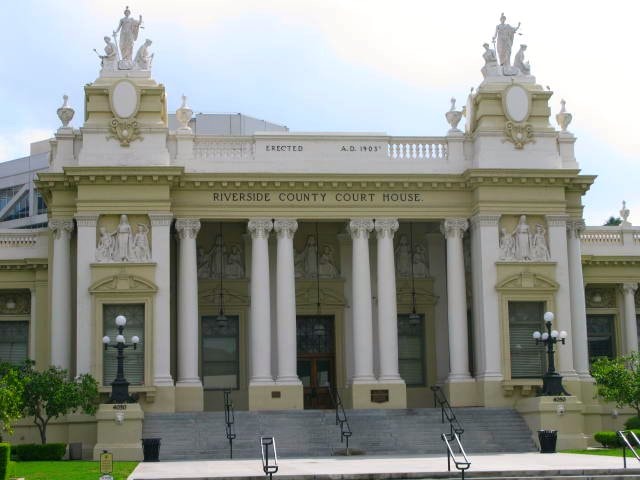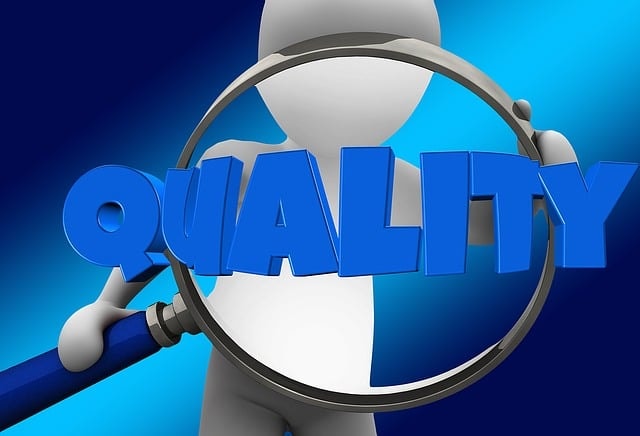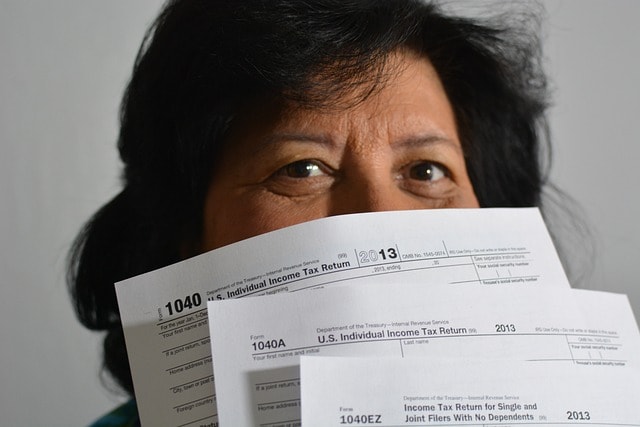How to Find the Best Attorney in Riverside, CA

Introduction
Navigating the legal landscape can be daunting, especially when faced with a situation requiring professional legal assistance. In Riverside, CA, a city known for its diverse population and complex legal needs, finding the right attorney is crucial to ensuring your rights and interests are well-represented. Whether you’re dealing with civil litigation matters, business disputes, family law issues, or criminal charges, the attorney you choose can significantly impact the outcome of your case, particularly in defending you in criminal defense cases.
This comprehensive guide will walk you through finding, evaluating, and selecting the best attorney in Riverside to meet your legal needs. We’ll cover everything from understanding different areas of law to assessing an attorney’s credentials and determining if they fit you.
1. Determine Your Legal Needs

Before searching for an attorney in Riverside, identifying the type of legal assistance you require is essential. The law is a vast field with numerous specializations, and attorneys often focus on specific areas to provide expert services. Common legal regions include:
- Civil litigation
- Business law
- Family law
- Criminal Defense
- Personal injury
- Estate planning
- Intellectual property
- Employment law
- Real estate law
- Immigration law
It’s essential to understand the difference between civil and criminal law. Civil law cases typically involve negligence, such as car accidents, whereas criminal cases imply intent and wrongdoing, impacting the legal proceedings and outcomes.
Each of these areas requires specific knowledge and expertise. For example, if you’re dealing with a business dispute, you’ll want an attorney well-versed in business law and commercial litigation. A criminal defense attorney would be most appropriate if you’re facing criminal charges.
Take some time to reflect on your situation and identify your primary legal issues. This will help you narrow down your search to attorneys with relevant expertise.
2. Research Local Attorneys

Once you’ve identified your legal needs, it’s time to start researching attorneys in the Riverside area. There are several resources you can use to find potential legal representatives:
The California State Bar Website
The California State Bar maintains a comprehensive directory of licensed attorneys. You can search by location and area of practice to find attorneys in Riverside who specialize in the field of law you need.
Local Bar Association Directories
The Riverside County Bar Association provides a referral service that can connect you with attorneys who match your needs. This can be a great starting point, especially if you’re unsure where to begin your search.
Online Legal Directories
Websites like Avvo, FindLaw, and Martindale-Hubbell offer directories of attorneys, often including client reviews and ratings. These can provide valuable insights into an attorney’s reputation and track record.
Personal Recommendations
Don’t underestimate the power of personal recommendations. Ask friends, family members, or colleagues if they have experience with attorneys in Riverside. Personal referrals can often lead to finding trustworthy and effective legal representation.
Business Referrals
If you’re dealing with a business-related legal matter, such as disputes that arise from interactions between businesses and individuals, consider asking other business owners or professionals in your network for recommendations. They may have experience with attorneys specializing in your specific area of need.
As you research, create a list of potential attorneys to consider. Aim for a list of at least 5-10 attorneys or law firms that seem to align with your needs.
3. Check Credentials and Experience

Once you have a list of potential attorneys, it’s time to dig deeper into their credentials and experience. This step is crucial in ensuring you’re considering qualified professionals with the necessary expertise to handle your case effectively.
Verify License and Standing
First and foremost, verify that the attorney is licensed to practice law in California. You can do this through the California State Bar website. Additionally, check their standing with the State Bar to ensure no disciplinary actions or suspensions are on their record.
Educational Background
While not always indicative of an attorney’s abilities, their educational background can provide insights into their foundational knowledge. Look for information about where they attended law school and any additional relevant education or training.
Years of Experience
Consider how long the lawyers have been practicing law, particularly in their areas of expertise and specializations relevant to your case. While newer attorneys can be skilled and dedicated, complex cases often benefit from the insights and strategies developed through years of practice.
Specializations and Certifications
Some attorneys pursue additional certifications or specializations in their field. For instance, an attorney might be a certified specialist in family law or business law. These credentials can indicate a deeper level of expertise in a particular area.
Case History
If possible, look into the attorney’s case history. Have they helped people who have faced legal challenges similar to yours? What were the outcomes? While past performance doesn’t guarantee future results, it can give you an idea of their experience with cases like yours.
Professional Associations
Membership in professional associations, such as the American Bar Association or specific practice area associations, can indicate an attorney’s commitment to staying current in their field and networking with other professionals.
4. Read Reviews and Testimonials

Client reviews and testimonials can provide valuable insights into an attorney’s effectiveness, communication style, and client satisfaction. While it’s essential to approach online reviews critically, they can offer helpful perspectives on working with a particular attorney or law firm.
Sources for Reviews
- The attorney’s website (though these are likely to be curated positive reviews)
- Legal directories like Avvo or Martindale-Hubbell
- Google Business reviews
- Social media platforms
What to Look For in Reviews
- Communication: Do clients feel the attorney kept them informed and was responsive?
- Professionalism: Are there comments about the attorney’s conduct and demeanor?
- Case Outcomes: While every case is unique, look for patterns of successful resolutions.
- Transparency: Did the attorney provide transparent information about fees and processes?
- Overall Satisfaction: Would clients recommend this attorney to others?
Remember that a few negative reviews, among many positive ones, shouldn’t necessarily be a deal-breaker. Look for how the attorney responds to negative feedback, which can provide insights into their professionalism and client care.
5. Schedule Consultations

After narrowing down your list based on credentials and reviews, the next step is to schedule consultations with your top choices. Many attorneys in Riverside offer free initial consultations, which provide an excellent opportunity to:
- Discuss the specifics of your case
- Assess the attorney’s communication style and approachability
- Understand their initial thoughts on your legal matter
- Get a sense of their expertise and confidence in handling your type of case
- Discuss potential strategies or approaches they might take
Schedule a consultation today to ensure timely and effective legal assistance.
Preparing for the Consultation
To make the most of your consultation:
- Prepare a summary of your legal issue
- Gather any relevant documents or evidence
- Write down a list of questions you want to ask
- Be ready to discuss your goals and expectations for the case
Questions to Ask During the Consultation
- How much experience do you have with cases like mine?
- What potential outcomes do you foresee for my case?
- What strategy would you recommend, and why?
- How do you typically communicate with clients, and how often?
- Who in your office will be working on my case?
- What is your fee structure, and can you estimate my case?
- Are there any potential challenges or weaknesses in my case?
- How long do you expect my case to take to resolve?
6. Consider the Firm’s Resources

The resources available to your attorney can play a significant role in the handling of your case, especially for complex legal matters. Consider the following:
Firm Size and Structure
Larger firms in Riverside and the Inland Empire may have more extensive resources, including:
- Teams of attorneys with diverse specializations
- In-house investigators or researchers
- Advanced technology for case management and research
- Established relationships with expert witnesses
Smaller firms or solo practitioners, on the other hand, might offer:
- More personalized attention
- Direct communication with your primary attorney
- Potentially lower overhead costs, which could translate to lower fees
Support Staff
Inquire about the support staff who will assist with your case. Paralegals, legal assistants, and junior attorneys can all play crucial roles in case preparation and management.
Technology and Research Capabilities
Modern law practice relies heavily on technology for research, document management, and case preparation. Ask about the firm’s technological capabilities and how it leverages these tools to benefit its clients.
7. Discuss Fees and Billing

Understanding the financial aspects of hiring an attorney is crucial to avoid surprises and ensure you can afford the necessary representation. During your consultation, be sure to discuss:
Fee Structures
Attorneys may use various fee structures, including:
- Hourly rates
- Flat fees for specific services
- Contingency fees (standard in personal injury cases)
- Retainer agreements
Additional Costs
Inquire about any additional costs you might incur, such as:
- Court filing fees
- Expert witness fees
- Costs for obtaining records or documents
- Travel expenses
Payment Plans
If the anticipated costs are significant, ask if the attorney offers payment plans or alternative arrangements to make their services more accessible.
Fee Agreements
Request a written fee agreement that clearly outlines all costs and billing practices. This document should detail what services are covered, how you will be billed, and any circumstances that might lead to additional charges.
8. Trust Your Instincts
After meeting with potential attorneys and gathering all the necessary information, reflecting on your interactions and trusting your instincts is essential. Consider:
- Did you feel comfortable discussing your case with the attorney?
- Did they listen attentively and show genuine interest in your situation?
- Were they able to explain legal concepts clearly and answer your questions satisfactorily?
- Do you feel confident in their ability to represent your interests effectively?
- Can you envision working closely with this person throughout your legal process?
Remember, the attorney-client relationship often involves sharing personal or sensitive information, so it’s crucial to feel at ease with your chosen attorney.
Conclusion
Finding the right attorney in Riverside, CA requires thorough research, careful consideration, and personal assessment. By following these steps—determining your legal needs, researching local attorneys, checking credentials, reading reviews, scheduling consultations, considering firm resources, discussing fees, and trusting your instincts—you can identify a legal professional who not only has the necessary expertise but also aligns with your needs and communication style.
Remember that the right attorney can be a powerful advocate in navigating the complexities of the legal system and achieving the best possible outcome for your case. Take your time with this decision, as it can significantly impact the resolution of your legal matter.
Whether you’re dealing with a personal injury claim, facing criminal charges, navigating a complex business dispute, or addressing family law issues, the diverse legal community in Riverside offers skilled professionals ready to assist you. By investing time and effort into finding the right attorney, you’re taking a crucial step toward protecting your rights and interests in the legal arena. Legal services are also available in Riverside and San Bernardino counties, ensuring comprehensive support across these regions.
Related Terms: Team,
FAQs
- How much does it typically cost to hire an attorney in Riverside? Costs can vary widely depending on the type of case and the attorney’s experience. Hourly rates in Riverside can range from $200 to $500 or more. Many offer free initial consultations, and some work on contingency for some instances, particularly personal injury claims. For more information, visit our website to schedule a free consultation.
- How long does it usually take to resolve a legal case in Riverside? The duration depends on the complexity of the case and court schedules. Simple matters might be resolved in a few months, while complex litigation can take several years. Your attorney should be able to provide a rough timeline based on their experience with similar cases.
- Can I change attorneys if I’m not satisfied with my current representation? Yes, you have the right to change attorneys at any time. However, consider the potential impact on your case and any financial implications before switching. Communicate your concerns with your current attorney first, as open dialogue can resolve many issues.
- Are there any free legal resources available in Riverside? Yes, organizations like Inland Counties Legal Services offer free legal aid to qualifying low-income individuals. The Riverside County Superior Court also provides self-help resources for individuals representing themselves in certain cases.
- How often should I expect updates from my attorney about my case? This should be discussed and agreed upon at the beginning of your attorney-client relationship. Regular communication is essential, but the frequency may depend on the nature and stage of your case. Some attorneys provide monthly updates, while others communicate as significant developments occur.
Did You Know?
- Riverside is part of the larger Inland Empire region, including San Bernardino County. This area has a rich legal community serving diverse needs, from agricultural law to high-tech intellectual property disputes.
- The California State Bar requires attorneys to complete 25 hours of continuing legal education every three years to maintain their licenses, ensuring they stay updated on current laws and practices.
- Riverside County has one of the busiest court systems in California, handling over 200,000 cases annually across various legal areas.
- Many attorneys in Riverside are actively involved in local community service and pro bono work, contributing over 10,000 hours annually to the area’s legal and social welfare.
- The Riverside legal community often collaborates with local law schools, providing over 500 internship opportunities annually and helping to shape the next generation of legal professionals in Southern California.
- Riverside’s legal landscape is diverse, with attorneys speaking over 20 languages to serve the area’s multicultural population.
- The Riverside County Bar Association, established in 1894, is one of California’s oldest and most active bar associations, offering numerous programs to support both attorneys and the public.













